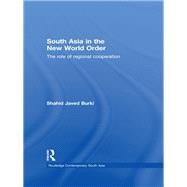- ISBN: 9780415587266 | 0415587263
- Cover: Hardcover
- Copyright: 4/27/2011
The main focus of the book is to indicate how South Asia can take advantage of the rapid changes taking place in the structure of the global economy. It argues that the developing global economy will be much more complex than implied by what may be called the G2 model: that from a unipolar world the world is moving towards a bilpolar configuration with two countries ' the US and China ' at the center. According to the author's view, however, the world will be multipolar with these eight centers of economic activity, Brazil, China, the European Union, India, Japan, Russia, South Africa and the United States.Suggesting that in the context of such a world, there should be regional cooperation between India and its immediate neighboring countries for South Asia to advance as an economic region. The book argues that South Asia will thus need to deal with its history, and changes in attitudes will be needed particularly in India and Pakistan, the two largest countries of the area. Placing considerable emphasis on the role of the state in economic growth, it is argued that while capitalism as an economic philosophy will survive in spite of the jolts it has received in 2007-09, it will be redefined, in particular with reference to the role of the state.In conclusion, the book provides a rough quantitative estimate of the benefits that may accrue to the region in terms of increases in the rates of economic growth if the regional approach is adopted so as to demonstrate the benefits to be realized from regionalism in South Asia.






